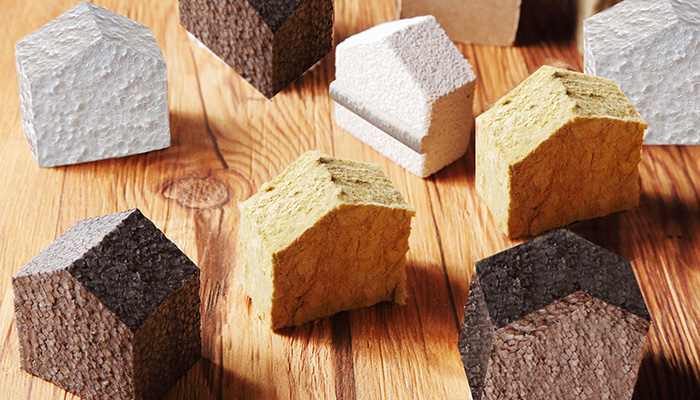
Before we look at the different insulation types on the market we firstly need to understand the way insulation impacts a property or building. Whilst there are many types of insulation knowing which material is appropriate for your building type is essential for achieving the best performance.
How Insulation Works
Thermal insulation is a means to prevent heat loss or heat gain by creating a barrier between two areas that are significantly different in temperature. Insulation is not designed to keep the cold out but to slow the loss of heat from the home. Effective use of insulation has the ability to reduce heat loss during the cold weather and also keep your home cool during warmer weather.
A typical home has the potential to lose as much as 30% of heat through the walls alone with the remaining heat loss escaping through the roof, windows, doors and floors.
Insulating a property or building will help reduce energy consumption, lower energy bills and help to alleviate damp, making it a healthier environment to live / work in.
What insulation is suitable?
Enhanced EPS Insulation
Enhanced EPS is one of the most popular insulation products on the market because it is lightweight, easy to use, cost effective and due to its graphite component it offers great thermal improvements making it an ideal choice for home owners and installers. Its closed-cell structure inhibits water absorption and it is unaffected by the normal range of climate change reducing the risk of water penetration and condensation to a property or building.
The insulation is available in a range of thicknesses but when it comes to external wall insulation to an existing property, 90mm of insulation is the recommended thickness to achieve a U-value of 0.30W/mK which would bring a property or building in line with current building regulations.
Enhanced EPS boards can be used on timber, steel and masonry substrates and are suitable with a wide range of external façade systems.
High Density EPS Insulation
High density EPS is a stronger, higher density EPS with improved water repellence properties. It is an ideal insulant to use below DPC where it is likely to be exposed to damp and wet conditions. The 200 grade version of the EPS board has a slightly reduced thermal performance providing a U-value of 0.034 W/mK.
Stone Wool Insulation
Stone Wool insulation is made from non-combustible inorganic rock wool. It is a high strength, rock Stone Wool slab with a water-repellent additive specifically designed for use in external wall insulation systems. It is dimensioned to be easy to handle and fix to a variety of substrates.
This type of insulation is often favoured with architects due to its breathability, long-term compressive strength, high impact resistance, and thermal performance. This insulation also benefits from better acoustic performance as the open wool structure makes it ideal for absorbing and regulating noise in both residential and commercial buildings. Due to its non-combustibility it also offers superior fire protection achieving an A1 Euroclass rating which is the highest rating available and means it won’t burn or contribute to any stage of a fire.
When attached to the exterior of a property or building, 100mm-110mm in thickness will provide a U-value of 0.30W/mK so when comparing this to Enhanced EPS it means you will need more in order achieve the same level of thermal performance.
Phenolic Insulation
Phenolic insulation is manufactured by a process in which a plastic foam forms an insulating core between two flexible tissue faced layers. It has a high closed cell content and fine cell structure.
Rigid phenolic insulation is produced by mixing high solids and phenolic resin with a surface acting agent. The heat created by the reaction evaporates a volatile liquid blowing agent in the mixture which produces a network of small bubbles in the material.
Phenolic insulation has been specially designed to be used with masonry walls and is suitable for a range of external wall insulation systems.
When using phenolic insulation as part of an external wall insulation system, it is possible to use a thickness of 60mm to achieve a u-value of 0.30W/mK making it the highest performing in terms of thermal benefits. This is ideal for projects where space is limited as the depth of reveal can be minimised. It also means this insulation has the ability to achieve thermal conductivities as low as 0.020W/mK taking this beyond the current building regulations which would ultimately provide enhanced energy savings to a property or building.
Wetherby Insulation Options
For more information about the insulation options available from Wetherby Wall Systems click below or call the Technical Team on 0800 1073299.
Insulation Options 01942 717 100
01942 717 100

 01942 717 100
01942 717 100

